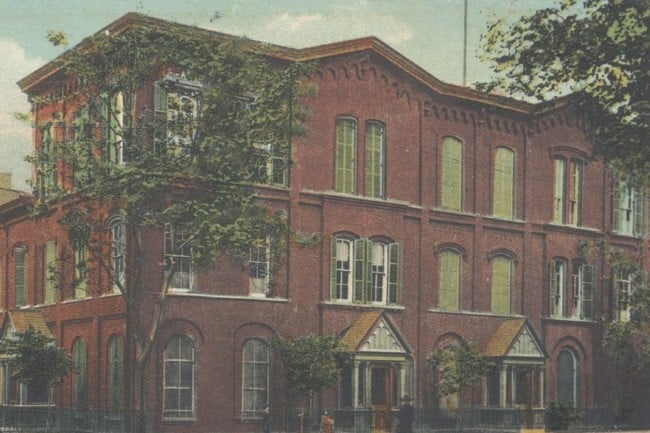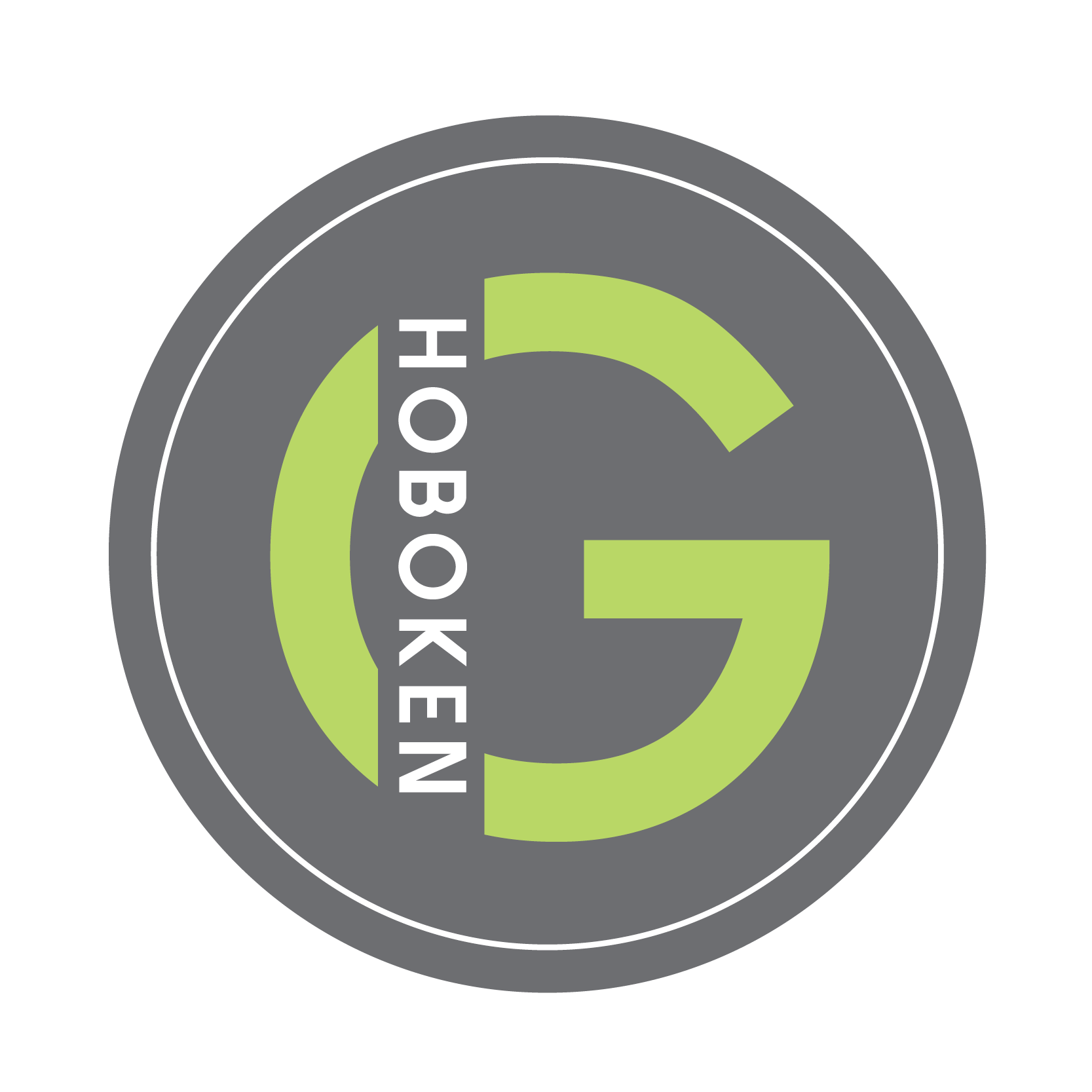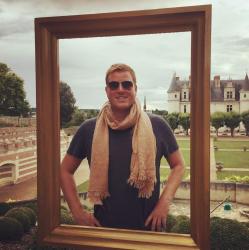Kids all around the country are sharpening their pencils, grabbing their glue sticks, and packing their backpacks to prepare for the start of school, which is just around the corner. But what many Hudson County residents may not know is that back-to-school takes on a special meaning for us — because the first school in America with a kindergarten was actually founded right here in Hoboken. That’s right — way back in 1861, the first school in the country to offer kindergarten classes as part of its curriculum was the Hoboken Academy — located at 5th Street and Willow (501 Willow Avenue). The class began on February 11th, 1861 with 77 students in attendance. In addition, Hoboken was also home to the first teachers’ pension. Read on to learn all about the very first in-school kindergarten in the United States, located right here in Hoboken, New Jersey.
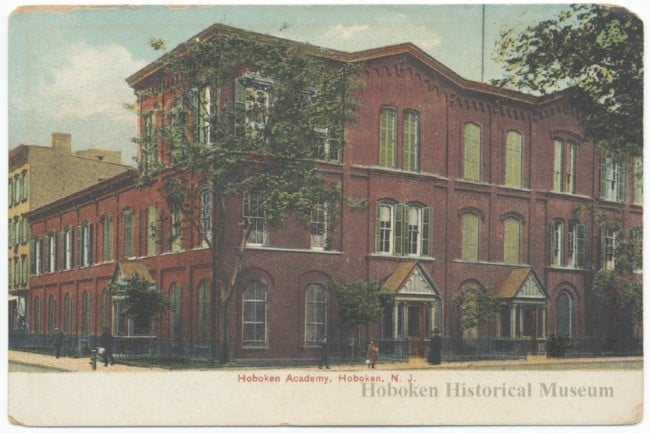
(Photo credit: Hoboken Historical Museum)
Pigs in the Playground
Hoboken Academy was built on 5th Street, facing what was planned to be Church Square Park. However, as one 1863 graduate wrote, “Few believed that the hope would ever be realized, as the Square was in awful condition; ashes and garbage were thrown there and pigs were often seen.”
In fact, it would be another 6 years until an ordinance was drafted “to prevent cattle from encumbering or stopping upon the streets of Hoboken.” The ordinance passed on September 18th, 1867, reading, “The Mayor and Council of the City of Hoboken do ordain as follows: Section 1. That hereafter droves of cattle, horses, sheep, swine, or other animals shall not be driven through the streets of Hoboken between eight o’clock in the morning and six o’clock in the evening, under a penalty of ten dollars for each and every offense.”
Once the livestock were kept at bay, children from ages 4-6 were taught with toys, singing, and games while combining math, reading, and science. Soon, the kindergarten grew to 450 students a year, flourishing under the tutelage of the kindergarten’s peculiar founder, Dr. Adolf Douai.
Read More: Sign Up for HG’s Newsletter
A Radical Kindergarten Teacher: Adolph Douai
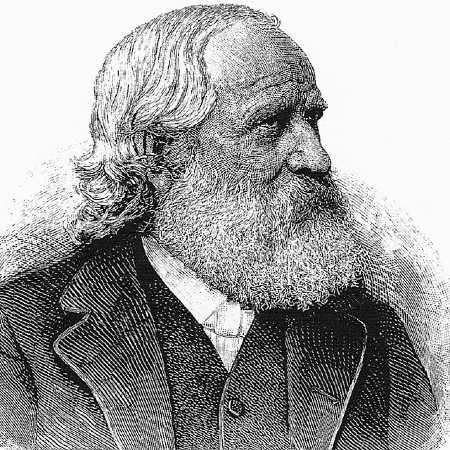
Despite his now unfortunate name, Adolf was as outstanding a character as he was uncommon. Born to a poor family in modern-day Germany, he was undernourished as a child, leading to Adolf’s short stature of just 4 feet 8 inches tall. At the time, Germany was not yet a country, but German speakers like Friedrich Fröbel created the concept of kindergarten — a word that still retains its Germanic roots. Luckily, Adolph received a good education from the University of Leipzig, but his scholastic career was cut short due to funding, so he earned money as a private tutor in Russia — an experience that radicalized the young man.
Adolph fought in the tumultuous Germanic Revolutions of 1848, organizing clubs for workers and students. He was charged with high treason and sentenced to one year in prison. Following his release, Adolph was pressured by his government to emigrate, so he moved to the United States, settling in Texas until his outspoken rebuke of slavery drove him to the Northeast. He resettled in Hoboken in June of 1856 — where he felt at home in Hoboken’s largely German population.
He was an early and prominent member of the Socialist Labor Party of America and nearly served as the English-language translator of Das Kapital, the magnum opus of Karl Marx first published in 1867. Yet, long before most educators, Adolph embraced the belief that children’s play had developmental and educational power.
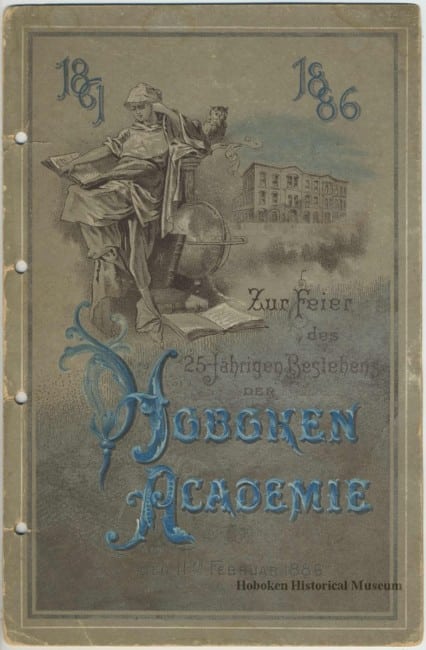
(Photo credit: Hoboken Historical Museum)
Boston’s Supposed “First” Kindergarten
Adolph traveled to Boston in 1859 and formed an early prototype of an elementary school and kindergarten within his home there. Often, Elizabeth Peabody is solely credited with opening the first American kindergarten, located in Boston.
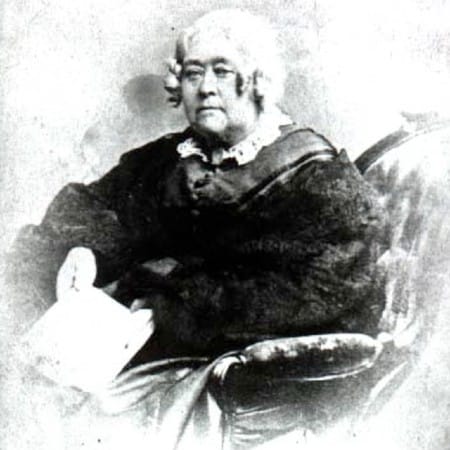
But Elizabeth noted in her writings of Douai’s contribution to the education system through the creation of his Boston kindergarten. Moreover, there are two other claims of earlier kindergartens in America also offered within homes. But Hoboken has the unique distinction of integrating kindergarten as part of a school’s regular course curriculum.
The original Hoboken Academy building was demolished in the 1970s, but a new building, modeled after the old Academy, was built on-site.
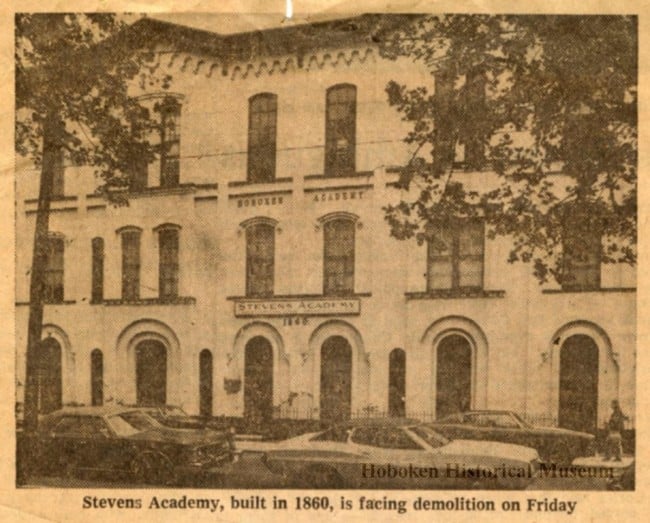
(Photo credit: Hoboken Historical Museum)
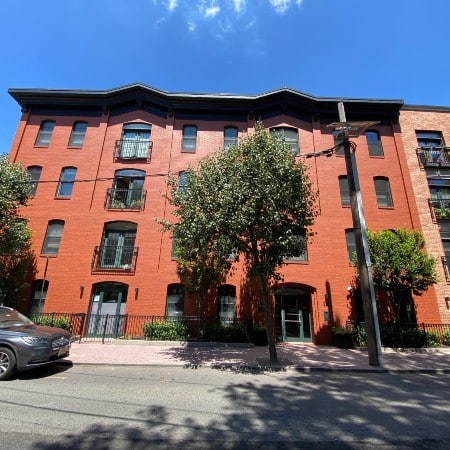
Coincidentally, the Hoboken Children’s Academy currently resides within the building, thereby continuing to keep the child development legacy alive.
See More: Montclair Culinary Academy: Creating Connections + Chefs in Montclair
Two Educational Bonuses
The First Teachers’ Pension
School reform in Hoboken did not stop with kindergartens. Hoboken was also the first to establish a pension for teachers when an Assemblyman from Hoboken, Michael J. Coyle, introduced Senate Bill Number 171 in 1892 — thereby providing the first teachers’ pension enacted in any legislature of the United States.
Toys
Lastly, Hoboken’s love for children and their toys has one final first. The first American manufacturer of toy decals for children was established in Hoboken when, in 1908, the American Transfer Picture & Printing Co. printed toy goods for children.
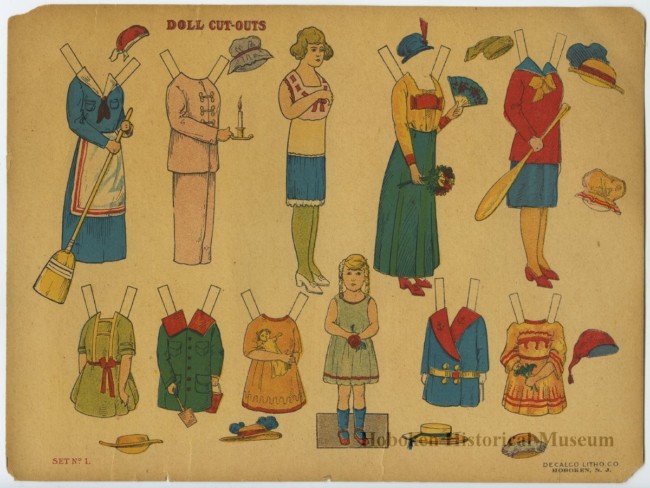
(Photo credit: Hoboken Historical Museum)
By the 1920s, they were located at 611 Newark Street and incorporated as the Decalco Litho Company, Inc.
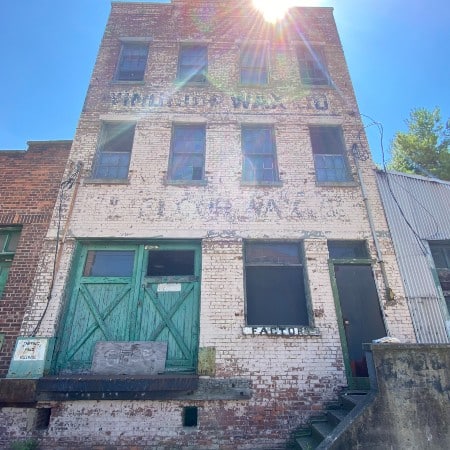
History proves Hoboken has always had a soft spot for children, even whether the streets were crowded with cattle.
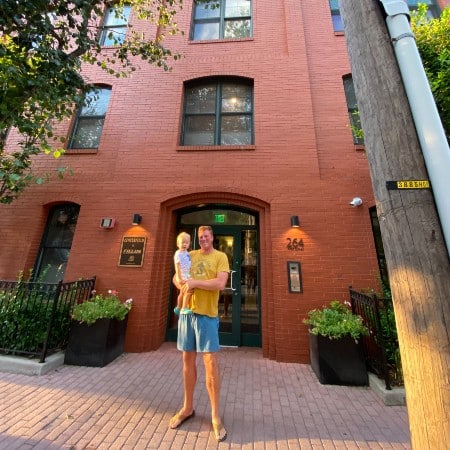
^ Eliot Hudson + his son before the first school-kindergarten building

